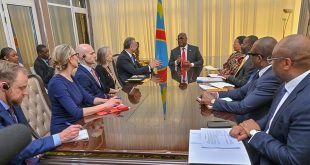Julius Mukunda, Coordinator for Civil Society Budget Advocacy Group says the report makes a point they have been making all along.
“It goes back to the point we have been making all along, the potential in this country to collect revenue is so much. Unfortunately, income tax is paid by a few Ugandans,” he said.
He says the situation reported in the study is even more disappointing because it comes at a time whenMPs have just amended the Income TaxAct to re-introduce a clause that exempts them from paying this tax on their allowances. As a result, URA cannot now collect up to Shs3.6 billion in taxes on the allowances of the MPs every month.
Experts say, as a result of such loopholes, Uganda’s tax collection has remained low for decades. Mukunda says, however, the MPs unwillingness to pay tax on their income is not as straightforward as is being portrayed. He says the “MPs have replaced government by paying school fees, taking care of the poor and funding various other activities in their constituencies”.
Blame on poor services
Mukunda’s view is echoed in another publication done by Joseph Mawejje and IbrahimMike Okumu, research analysts at Economic Policy Research Centre (EPRC) in Kampala. Titled `Tax Evasion and the Business Environment in Uganda’, it attributes low tax compliance in Uganda to a perception that the government has failed to use tax money to provide quality of public services. In turn, potential payers evade taxes because public services are substandard.
THE EPRC report also notes that businesses evade taxes partly because the business environment is “unfriendly”. Business owners are frustrated by unnecessary delays or red tape, infrastructural deficiency, legal and regulatory inefficiency. The study suggests that if the situation in these areas improved, tax payers could possibly develop incentives to pay taxes. It adds that an adverse business environment characterised by inadequate provision of public capital, bureaucratic bribery, and an inefficient legal environment could potentially induce a company’s behaviour towards tax evasion.
But the Executive Director of the Anti Corruption Coalition Uganda (ACCU), Cissy Kagaba, is clear about the cause of URA’s failure to tax the rich and powerful. She blames corruption, abuse of office and influence peddling.
Kagaba told The Independent: “Many of these high ranking government officials and other importers have been able to dodge paying taxes because they have all the power to determine what tax should be levied on which goods entering the country. In some cases, they give directives on which business should be taxed. This is part of the patronage problem”.
She says the tax evasion does not involve only big shots. She notes how many small operators connive with tax officials to bypass revenue collection points. According to her, the problem is not mainly the informal nature of Ugandan businesses but a generally ineffective tax enforcement mechanism with its countless loopholes.
 The Independent Uganda: You get the Truth we Pay the Price
The Independent Uganda: You get the Truth we Pay the Price




What change is going to make? you are all working for Rwanda Project!!
URA the solution is simple. Make a TIN mandatory for all business transactions and you will see the results.
“He says the “MPs have replaced government by paying school fees, taking care of the poor and funding various other activities in their constituencies”……also other ugandans pay school fees ,take care of poor relations,funding various activities in their communities like weddings,…and still have to pay their taxes yet earn significantly less than the mps…